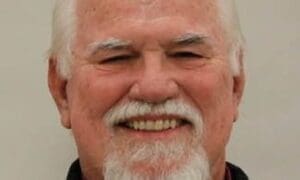Evangelist Dwight L. Moody told of an acquaintance whose only child had died. The sorrow was so great that his heart was almost broken by it. Before he suffered this loss, he had never given serious thought to life after death.
Shortly after the child was buried, friends and relatives were surprised to see the deep interest he was showing in the Bible. He read it constantly. When someone asked him about his sudden interest in the Bible, he answered that he was trying to find out something about the place where his boy had gone.
How much do we know about heaven? How much do we long for heaven? My late uncle used to tell the story about the preacher who was visiting the children’s Sunday School class and talking to them about heaven.
He asked, “How many of you boys and girls want to go to heaven?” Everyone raised his or her hand except little Tommy.
“Tommy, don’t you want to go to heaven?”
The little boy said, “Yea, someday, but I thought you were getting’ up a load right now.”
We think of heaven as a place, because Jesus said, “In my Father’s house are many mansions; if it were not so, I would have told you. I go to prepare a place for you” (John 14:2). The Bible teaches that heaven is a perfect place free from the hurts, illnesses, grief, and turmoil of this world.
Heaven is not only a place, but the Bible also describes heaven as a paradise. Jesus told the thief on the cross, “Today, you will be with me in Paradise” (Luke 23:43).
When the wife of Duke McCall, former president of The Southern Baptist Theological Seminary in Louisville, Ky., died, a well-meaning acquaintance caught him off guard after a church service and said, “I’m so sorry you lost your wife.”
Before McCall could catch himself, he said, “I did not lose my wife. I know exactly where Margueritte is. I’m the one who is lost!”
McCall had the assurance that, because Margueritte had a personal relationship with Jesus Christ, she had taken her place in heaven, and that, as is often mentioned at funerals, she “was better off.”
Paul wrote that being with Christ in heaven is “better by far” (Philippians 1:21-23). He looked forward to eternity. Do we?
There is a well-circulated email story about a terminally ill man who was given a short time to live. His doctor told him to begin making necessary arrangements. So he called his pastor to come to his house to discuss arrangements for his funeral. He told him which songs he wanted sung and which scriptures he wanted read. He also told the pastor he wanted to be buried with his favorite Bible.
The pastor thought they were finished, but the man said, “One more thing. I want to be buried with a fork in my right hand.”
The puzzled pastor asked, “Why do you want to be buried holding a fork in your right hand?”
The man explained, “In all my years of attending church socials, my favorite thing was when whoever was clearing away the dishes of the main course would lean over and say ‘Keep your fork. The best is yet to come.’
“I knew something great was in store, that some kind of delicious dessert was on the way. So I just want people to see me in that casket with a fork in my hand and I want them to wonder, ‘What’s with the fork?’ Then I want you to tell them, ‘Something better is coming, so keep your fork, too.’”
The day of the funeral arrived, and the fork in his hand did raise questions. “What’s with the fork?” people asked one another.
In the eulogy, the pastor told about his last visit with the man, and the man’s unusual request. Then he affirmed the man for his strong testimony, even in death, that “the best is yet to come.” So hold on to your fork.
Dr. David L. Chancey is pastor, McDonough Road Baptist Church, Fayetteville. The church family meets at 352 McDonough Road, just past the department of drivers’ services building, and invites you to join them for Bible study at 9:45 a.m. and worship at 10:55 a.m. each Sunday. Visit them online at www.mcdonoughroad.org, and like them on Facebook.










Leave a Comment
You must be logged in to post a comment.